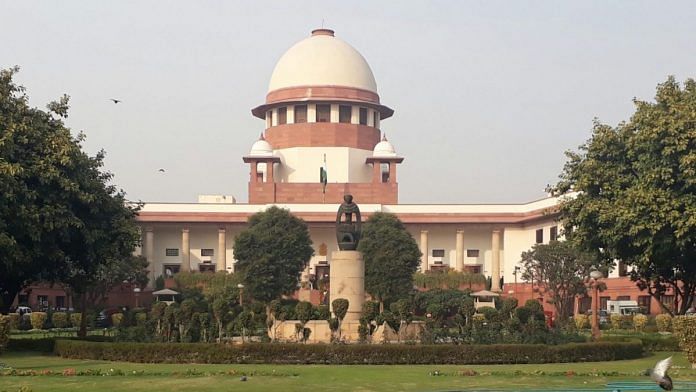A petition was filed in Supreme Court Thursday challenging constitution amendment bill reserving 10% quota for poorer sections in general category.
New Delhi: The first legal challenge to the Constitution amendment providing 10 per cent reservation in jobs and educational institutions to economically backward sections in the general categories has been mounted.
A petition was filed Thursday in the Supreme Court by Youth For Equality challenging the amendment bill passed by both Houses of Parliament on the ground that the amendment was unconstitutional.
This amendment inserts Articles 15(6) and 16(6) in the Constitution which allow the State to provide for a maximum of 10 per cent reservation for any economically weaker sections (EWS); the EWS to be a different class than the backward classes or Scheduled Castes and Scheduled Tribunes and for the new category of reservations to be for unaided (read private sector) institutions as well.
Here are the main contentions of the petitioners on why the amendments must be declared unconstitutional.
Economic criteria cannot be sole basis for reservation:
The petitioners have pointed out that in Indra Sawhney versus Union of India, the Constitution bench of the Supreme Court “specifically stated that the economic criteria cannot be the sole basis for reservations under the Constitution”.
Economic reservation cannot be limited to general categories:
The Supreme Court has upheld the equality code as one of the foremost basic features of the Constitution. By way of the present amendments, the exclusion of the OBCs and the SCs/STs from the scope of the economic reservation essentially implies that only those who are poor from the general categories would avail the benefits of the quotas.
Taken together with the fact that the high creamy layer limit of Rs 8 lakh per annum ensures that the elite in the OBCs and SCs/STs capture the reservation benefits repeatedly, the poor sections of these categories remain completely deprived. This is an overwhelming violation of the basic feature of equality enshrined in Article 14 of the Constitution and elsewhere.
The 50 per cent ceiling limit cannot be breached:
The 50 per cent ceiling limit on reservations has been engrafted as a part of the basic structure of the Constitution’s equality code. This fact has been reiterated by the Constitution bench recently.
Imposing reservations on unaided institutions is manifestly arbitrary:
Both the Constitution bench judgments in T.M.A. Pai Foundation and P.A. Inamdar make it clear that the State’s reservation policy cannot be imposed on unaided educational institutions and as they are not receiving any aid from the State, they can have their own admissions provided they are fair, transparent, non-exploitative and based on merit. The effective nationalisation of unaided institutions to the extent of economic reservation is violative of Article 14 of the Constitution and also of the basic features of autonomy and equity.
Also read: Why Modi govt wants quota for upper castes — their state is as pathetic as OBCs




Unseemly haste is the flavour of this legislation, an amendment to the Constitution, no less. The same day when a minister informs Parliament in reply to a question that no such proposal is under consideration. If the apex court desires to study the process of decision making in government that underlay such a momentous decision, including consultation with concerned ministries, notably Law, it may find little to explain the government’s thinking and rationale. Of course, the legality of the decision will be tested on principles and judgments that are well settled and of long standing.